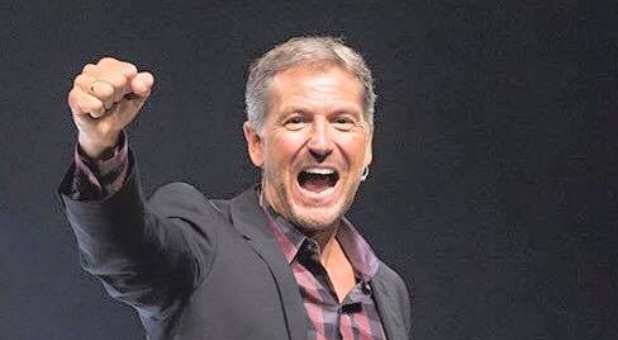It takes effort to stay free from offense. Paul compares it to exercising. If we exercise our bodies, we are less prone to injury. I’ll give you an example. While in Hawaii, I climbed a wall to take a picture. When I did, I pulled a group of muscles in my knee and could not walk for four days. “If you had been exercising regularly,” the physical therapist told me, “this would not have happened. Because your muscles are out of shape, you are prone to injury.”
Once I was able to walk, another expert instructed me, “You must do these exercises to bring your knee muscles back into proper shape and condition.” It took a few months to get my knee back to normal. The Greek word for “stive” in Acts 24:16 (NKJV) for “strive,” which quotes Paul as saying, “I myself always strive to have a conscience without offense toward God and men,” is askeo. Vine’s Expository Dictionary defines askeo as “to take pains, endeavor, exercise by training or discipline.”
Sometimes others offend us, and it is not difficult to forgive. We have exercised our hearts so they are in condition to handle the offense; therefore, no injury or permanent damage results. Many people could have climbed that wall in Hawaii and not been injured because they were in shape. Likewise, some are conditioned to obey God by exercising their hearts. Our degree of maturity determines how well we will handle an offense without injury.
Some offenses will be more challenging than those for which we’ve been trained. This extra strain may cause a wound or injury after which we will have to exercise spiritually to be free and healed again. But the result will be worth the effort.
Maturing Through Hardships
We have to remember that we grow in the tough times, not in the easy times. Hard places will always come in our journey with the Lord. We cannot escape them but must face them, for they are part of the process of becoming perfect in Him. If you choose to run from them, you will seriously hinder your growth.
As you strive, or exercise, to remain free from offense, you will become stronger and more compassionate. You will fall more in love with Jesus. If you have come out of hardships and do not feel this way, you have probably not recovered from the offense. Recovery is your choice. Some people get hurt and never recover. As cruel as this may sound, it is their choice.
Jesus learned obedience by the things He suffered. Peter learned obedience by the things he suffered. Paul learned obedience by the things he suffered. What about you? Have you learned? Or are you hard, calloused, cold, bitter and resentful? If you answered yes to the last question, then you did not learn obedience.
Yes, it’s true that there are some offenses that will not roll off you like “water off a duck’s back.” You will have to work through them, striving to get free. But in that process you will grow and mature.
Maturity does not come easily. If it did, all would attain it. Few reach this level in life or in their faith journeys because of the resistance they face. There is resistance because our society is not godly but selfish. The world is dominated by the “prince of the power of the air” (Eph. 2:2b). As a result, in the course of entering into the maturity of Christ we will face hardships that come from standing against the flow of selfishness.
Paul was compelled to return to three cities where he birthed churches. His purpose was to strengthen the souls of the disciples. How did he strengthen them? The Bible tells us he encouraged them by “exhorting them to continue in the faith, and saying, ‘We must through many tribulations enter the kingdom of God'” (Acts 14:22b.
He did not promise them a life of ease. He did not promise them success according to the world’s standards. He showed them that if they were going to finish their course with joy, they were going to meet up with much resistance that he called “tribulation.”
If you are rowing on a river against the current, you will have to row continuously in order to progress against the flow. If you stop rowing and relax, you will eventually be taken in the direction of the current rather than in the way you were heading. Even so, when we are determined to go God’s way we will meet up with many tribulations as we fight the current. The trials will all show the answer to one main question: Are you going to look out for yourself as the world does, or are you going to live a self-denied life? Are you going to continue to head in the direction God has for you, or are you going to go with the flow?
Remember that when we lose our life for the sake of Jesus, we will find His life. Learn to fix your focus on the end result, not the struggle.
Peter put it so well:
“Beloved, do not think it strange concerning the fiery trial which is to try you, as though some strange thing happened to you; but rejoice to the extent that you partake of Christ’s sufferings, that when His glory is revealed, you may also be glad with exceeding joy” (1 Pet. 4:12–13).
Notice that he compares the extent of suffering to the extent of rejoicing. How can you rejoice to that extent? When His glory is revealed, you will be glorified with Him. This glorifying is to the degree that you allow Him to perfect His character within you. So don’t look at the offense. Look at the coming glory. It will motivate you to strive to remain free from offense. Hallelujah! {eoa}
Excerpted from: Chapter 13 of The Bait of Satan by John Bevere (20th anniversary edition, Charisma House 2014).












































